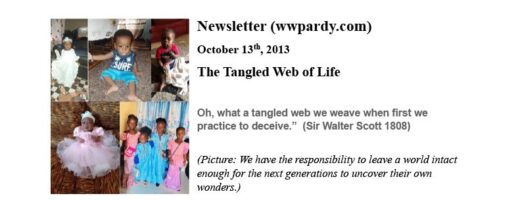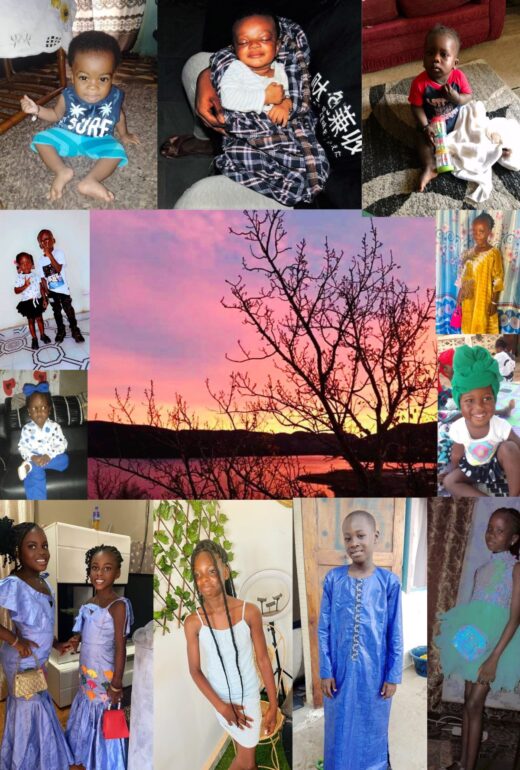Recently four of the local communities that have been part of my work completed a community survey with help from one of my university colleagues. These surveys provided interesting insights into the thinking and life of rural Ukraine. This piece of research was developed with the intent of helping the small development groups in these communities better understand the workings of their community. The questionnaires which were used asked people about their needs, wants and desires. They were also designed to gain an understanding of local communications and organization – formal and informal. The intention was to build on maps and data bases that these groups had begun.
What was evident to me in a review of the responses was the pervasive sense of mistrust demonstrated as much by the lack of answers and declined comments where personal statements and observations were required as by their particular indications of lack of trust. After living here for over two years this came as no surprise but did tweak my consciousness to consider living is a world without “trust”.
It has to be acknowledged that this is not a unique phenomenon to Ukraine, former Soviet countries or where war is raging. It is growing in nature in most western countries as well. In Britain, for instance, you can hardly move now without being observed on some video camera. Since 9-11 most countries have revamped their security regulations so that even boarding an airplane is quite a feat and very time consuming – and where even water or toothpaste is suspect. The news in most countries is full of suspicion about politicians, public employees have little respect and most institutions have lost their luster. And, of course, the media itself is under duress. Who should one trust? One could consider that the western developed society is rapidly on a road where mistrust is replacing trust.
But, let’s get back to my survey and the thoughts that flowed from my consciousness or elsewhere as I am never sure from where these thoughts evolve. In the survey people expressed a lack of trust in leadership, in governments, institutions and local organizations. But inferences in other answers and the evasiveness of many were more telling. Mistrust appears much deeper and more rooted here than many other places that I have been. But then if you take a glimpse of Ukrainian history and its tragedies it is easier to understand why. It does appear evident that a corollary of this is that people are close knit staying close to family and few defined friends – this aspect is refreshing in our world of individuality.
But there is an aspect that causes me some consternation that is the lack of trust in oneself which translates into a lack of confidence. The basis of confidence lies in trust in oneself; one’s abilities, talents and attitude. Couple this lack of confidence with a pervasive attitude of mistrust and an environment is created where stagnation exists and change is difficult at best; perhaps even impossible. Things will be perceived as remaining the same even though change is all around. But the changes may not be for the betterment of society and people really believe they have little control; if any.
This is part of my challenge here in my work. When possibilities are discussed and opportunities explored there is most often disbelief, other times resistance and sometimes even denial that such activities can happen at all. Frequently I am told that this the way it is, that this is how we are and life will never change. Despite the fact, that life has already changed dramatically over the past several years. This pervasive sense of disbelief, even despair, is most challenging and frustrating in moving forward and in the context of community self help which is the basis of the work that I do.
How does one motivate people, mobilize community action and develop new opportunities in an environment with such fixed mindsets? How does one build a sense of trust when little exists?
Trust is very much a part of the concept of community development. Trust is also fundamental to a democratic society – something that I know most here in Ukraine aspire to. Even in democratic countries trust is being replaced with surveillance, repressive and punitive laws are being thrust upon people and rights relegated to voting and not much else. We all need consider what it will be like living in a world without trust! Trust in oneself and by others is imperative to a meaningful life much less a means of governance.
Working and living in Ukraine it is not hard to feel suspect. Being Canadian, perceived to have some means (at least more than most people here) and experiencing a sense of freedom that most only dream about – freedom to roam with little restriction inside the country or out. Most people’s interpretation or expectation is, that I, like most others from abroad, who come to “help”, came for the opportunity and the experience and once this personal aim is fulfilled will disappear back to my own country. They then will be left with any fallout from their actions whether good or bad and have to contend with a life that remains unchanged. A refrain that I have heard from people in many disadvantaged communities over the years, even in Canada, comes to mind – “its all right for you”.
In Ukraine people are still bound by rigid boarders closed to most except those with influence, privilege or wealth. Some who are daring or naive, escape, many perhaps, to places they wish they hadn’t. This is especially relative to the young women who are enticed or coerced to leave.
How does one convince people that they can control at least some aspects of their lives when their experience has been that influence relates to money; of which they have little, if any? How can such people even believe that they have the capabilities to influence government, institutions and organizations?
There is little recent history here of pushing the limits of power until it changes. In our democracies, despite my own cynicism of events and happenings of recent years, it is possible to shift government and change many other aspects of our lives. It’s never easy, but it can happen. There are many such examples from my own years in local government and in development where government was pushed and policies and actions changed. It is also possible, as we have seen time and time again in many democracies, to defeat governments and political parties to the extent that some parties have been all but decimated. This happens most often, when these politicians haven’t lived up to their promises, expectations or because they were considered less than honest. When the trust was damaged something had to give.
But consider that in Ukraine, according to my understanding, in excess of 90% of politicians in the state government were former communist politicians and most bureaucrats worked in those governments, perhaps even for these same people. The reality is that the name of the system has changed but the people and most of the mindsets remain the same. Those in power before are still in power, only under a different guise.
Many people in state government and most involved at other more local levels are business people who see government as a way to increase their business income. Add to that the real tragedy of stolen wealth when the former Soviet system collapsed. Many of those in control captured the prized state industries and businesses (for very little) and are now wealthy Oligarchs who have not only power but enormous wealth as well. There are perhaps more billionaires in Ukraine than in Canada yet much of the country is considered impoverished and in most rural areas and for people on fixed incomes (including professionals) their standard of living is in decline.
Business interest appears to dominate the country as new industry, commercial enterprises apartment blocks and new homes are evident in most of the larger towns and cities. Banks seem to be growing like wildflowers spread in the wind as are petrol stations. Growing vehicular traffic because of easy and long term credit is creating severe problems with traffic. But these problems will exacerbate in the long term as the loans outlast the cars being purchased and payments will still have to be made. The problem is that capitalism appears to have gone wild here with no accountability.
Hardly any attention is being given to infrastructure or social needs much less quality of life or societal well being. In rural areas the basic lack of infrastructure and services including roads defies any sensibility and towns and cities are not much better. Local politicians for the most part seem to capture the opportunities to benefit themselves and people and their needs matter little. There appears no comprehension of public service. What does seem evident is that raw power and greed eclipses human compassion and concern. How long it will take for most communities to grind to a halt from traffic without adequate roads and business and buildings to collapse without proper municipal services and maintenance?
In such an environment it is easy to see how views are skewed, how misbelief becomes belief and how perception becomes reality. Sincerity comes under duress and one could even question if there is any at all. But when you witness such a strong family culture you immediately know that there has to be. But one has to wonder how long it can last with the stresses that are evident.
The western approach to development and aid are as much responsible for the current situation as the collapse of the Soviet system. The influence of once easy development funds is very evident in the organizations and structures that have been created and the lessons and attitudes that it has fostered. The project based mentality, so much a part of western development efforts is firmly rooted. Much of the effort by development groups (NGOs) is not about development at all, but about the next project and the perks and benefits it will bring the organizations and those that control them. The real difference now, is that, many of the donors have moved on to interests elsewhere in the world. Countries realize that the business base has been already captured either by local Oligarchs, Russians or stateless multinationals all who are only interested in their own profits – so why waste effort here. The dilemma is that from these businesses there is little real benefit flowing to the Ukrainian economy especially to those outside this immediate economic activity and little being contributed in taxation that would provide social infrastructure. Ukrainian people are left to struggle for themselves in an environment completely foreign to them.
All these issues contribute to my current challenge and my sensitive nature. How to make a contribution, yet maintain a semblance of trust? How does one continue to contribute to the people and communities with whom a relationship has been built, when the “project” that provided sustenance to local development groups, and my own as well, has ended. Obviously those who created it are getting ready to move on to the next project? Moving on, at this juncture, is not an option that fits my heart or my soul, when the process of renewal that is dear to me and was once espoused by this “project” has only begun. There are other projects that might be of assistance in some way and these are being explored. But most are just “projects” soulless entities that only provide crutches and short term fixes for a much greater ailment. Mostly, they benefit the proponent and the foreign donor or government, providing for them the demonstrated proof that something is being done. The process of community building (or rebuilding) requires much more commitment than short term projects with artificial outcomes to justify their worth.
In order for my work to continue people must have some semblance of trust in me to survive – for what help is anyone to them who can’t. I need to be able to maintain some balance in my own life, if my trust in myself is to be maintained, much less that of others. As before in life, when such chasms became evident; an inward journey was required. My beliefs needed revalidation and my reality had to be measured against my perceptions. Life has taught me that trust in myself and some greater good must not be crushed by wrong perceptions or misguided beliefs or even by “projects” that end.
As before, my first thought is that this time my stretch has been too far and the values that have been dear to me are, perhaps, just a sham; a means to sustain my own existence. Each time before at this particular twist in life’s journey, when feeling were stretched and sometimes bent to the breaking point my values have held and my beliefs strengthened. At this particular juncture my trust in my self and my heart and soul is strong as ever, and my values appear still a valid base for my life and my work. What will transpire over the next months is anybody’s guess.
Mostly, this time, I am puzzled by my circumstance; by many who surround me and a world where trust appears waning. Survival seems pervasive – no matter the cost to life, living or soul. To some degree this helps me appreciate life here in Ukraine and people’s lack of trust; but only partially. How can any one fully understand much less appreciate the soul of another without being apart of their history and heritage? How can anyone assimilate someone else’s traumas and scars and their resultant constraints? Especially, when one has had a privileged life such as mine; despite my own dramas, traumas and hurts in living it. Professionals might try to rationalize this, but for me that is not an option. My goal is something different that of helping others while better understanding myself. The last thing that I want is to hurt people under the guise of providing help, if indeed, help is what people need. Maybe care is a much better concept, because care is non intrusive – it just is.
If only we could share our souls with others and they with us, how rich would we become and how beautiful the world would appear. All the perceptions would fade into the reality of the beauty of nature and genuine kindness and caring that is in each of us if we only search it out. Money and power are such poor substitutes for care and love. The latter two require much lest effort, but need an honest appreciation of trust – trust not only in ourselves, but something greater than us. Genuine trust is required to share one’s soul with another but that is what a fulfilled life requires.
Who would have thought when my venture into Ukraine began there would have been so much to consider? More importantly, who would even consider at this juncture of my own life such feelings and thoughts would be part of it? Should life not get simpler as we age and not more complex? I guess it all relates to how you live it. Sometimes I think I took the wrong trail or trails throughout my life; there were many options. The others might have had less turns, more straight stretches and been much less mountainous. But in the midst of these thoughts and feelings life usually intervenes and shows me a beautiful landscape and wonderful people and the road is forgotten in the warmth of the feelings.
Written by Bill Pardy
December 12th, 2007


